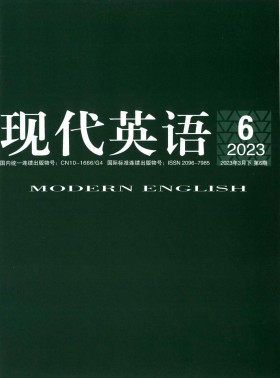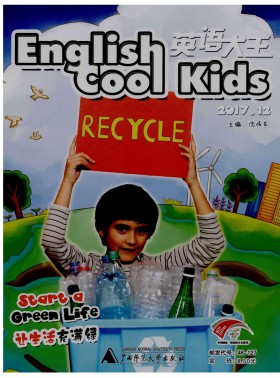
英语考试题范文1
【导语】2018年湖北高考英语已于结束考试了,
说明:2018年湖北高考英语试卷使用的是全国卷I,全国卷I适用的地区包括【河_南、河_北、山_西、江_西、湖_北、湖_南、广_东、安_徽、福_建、山_东】2018全国卷I高考英语试题已公布,由于湖北高考英语试卷采用全国卷I,所以就代表了2018湖北高考英语试题也已公布了。
点击查看:
英语考试题范文2
【导语】不惧困难不紧张,轻松坦然无压力。仔细阅读好答题,自信饱满创佳绩。2018年内蒙古高考英语已于6月8日11:30结束考试了,
2018年内蒙古高考英语试卷采用全国Ⅱ卷,全国卷Ⅱ适用地区包括:陇、青、蒙、黑、吉、辽、宁、新、陕、渝、琼。广大考生可点击下面文字链接查看。
点击查看:
英语考试题范文3
关键词:中考英语;听力考试;精听;泛听;解题方法;答题技巧
中图分类号:G632 文献标识码:B 文章编号:1002-7661(2015)16-103-02
中考英语听力考试在中考英语考试中占据重要的地位,直接影响到考生英语考试的发挥及最终的成绩。初三年的学生要想在中考英语考试中取得理想的成绩,就必须全面了解听力考试的题型、难度、解题策略、方法等,才能在考试中从容面对。
中考听力考试的命题原则是依据教育部中考改革的《指导意见》中的“外语考试应着重考查学生理解,运用语言的能力,要重视对听力的考查”,《课程标准》 “五级目标 ”也要求在突出学科特点的同时,体现贯彻新课程标准的理念,侧重考查学生的语言技能、语言知识、跨文化意识、跨文化交际能力和语言的综合运用能力,即听、说、读、写的四项基本技能。纵观近几年的中考听力试题,英语听力材料均与当前教材主题同步,体现教材的重点,难度适中。选取的材料也力求原创,结合时事热点,讲究语言及语境的地道性、趣味性、知识性。题型更加多样化,配上各种精美插图,形象生动。听力材料由专业外籍教师朗读,语音语调纯正、语速适中,为每分钟100-140个词。听力部分测试基本语句理解,初步交际运用和短文理解等。听力考试30分,题目20题。
考试时,考生在听每个句子、每段对话或短文前都有时间阅读各个小题,听完后,各个小题也将给出作答时间。之后将答案转涂到客观题答题卡上。听力考试分为两节:
第一节:听句子
该部分有5个句子,要求考生从A、B、C三个图画中选出符合句子内容的图画; 共5个小题,7.5分。每个句子读两遍。例如:
M:Tomatoes are my favorite.
第二节:听对话 (共15小题; 每小题1.5分,满分22.5分)
该部分有7段对话或独白,每段对话或独白后有1、2、3或5个小题,要求考生根据对话内容和要求从每小题所给的3个选项中选出正确答案。共15个小题,22.5分。前6段对话读两遍;第七段对话或独白读三遍。例如:
听下面一段对话,回答第6至第8三个小题。
M: Excuse me. How can I get to the bank? I don’t know the way.
W: Go along this road till you see a supermarket. The bank is just at the other side of the road, across from the supermarket.
M: Is it far from here?
W: Let me see. Er … no, it’s only about 200 metres from here.
M: Thank you very much.
W: It’s my pleasure.
听下面一段对话,回答第6至第8三个小题。
6. Does the man know the way to the bank?
A. Yes, he does. B. No, he doesn’t. C. We don’t know.
7. Where’s the bank?
A. Next to the supermarket. B. Behind the supermarket. C. Across from the supermarket.
8. How far is it from here?
A. 20 metres. B. 200 metres. C. 2 kilometres.
如何在初中总复习阶段训练听力,提高听力水平,在中考听力考试中取的好成绩,考生们应该做到以下几点:
1、做好听力材料的精听训练。考前数月,考生应着重把近三年来的中考、市质检英语听力考试材料进行多次试听,并且尽力将听力全文写下来,分析听力材料的各种题型以及考点,涉及到的情景对话有:问候、购物、打电话、看医生、问路、问时间、订餐、谈论天气、谈论喜好等等,测试的内容包括:时间、地点、人物、天气、价格、数量等要着重处理,做好笔记。笔者认为对近年来的英语听力材料进行认真的梳理、比较、复习,能够取到事半功倍的复习效果。《初中毕业升学考试复习指南丛书(英语)》中的配套英语听力材料也要加以重视,里面的很多听力习题也是考试中常见的类型题、原题。考生们将精听完后记录下来的听力材料与听力原文进行对比,发现其中有听错的内容加以改正,可以快速提高听力成绩。尤其应该注意的是数字:如thirteen & thirty 的区分,还要提醒考生注意部分英国英语与美国英语的读音差异,如dog 和got等单词的读音。
2、有的放矢地做好听力的泛听训练。初三年的学生因为接触的外界英语语言材料较少,缺乏英语语感,不能正确判断英语听力材料所传递的有效信息,无法明白设计题目的真实意图。因此进行大容量的泛听具有重要的意义,通过熟悉各种不同年龄、不同性别、不同职业的人群的英语对话,可以掌握和积累有用的句型、对话、习语,提高听力的适应性和准确性,扩大自己的听力理解水平和知识面。注意掌握听力答题的技巧,捕捉听力对话中的关键点和信息点,即5W和1H,when,where,who,what,why以及how,记录下所涉及到的信息点,以便在答题过程中做出正确的回应。对于较长的对话理解题,要教会学生带着问题去聆听对话,从较长的对话内容中捕捉有用的信息,摒弃无关的干扰信息,从而找出题目所需的正确答案。这就要求教师在课外给考生补充一些额外的听力材料,如各种类型的听力练习材料以及外省市区的中考听力材料,多听多练,提高学生的听力自觉性和敏感度,提高听力水平和考试成绩,以便适应即将到来的中考听力考试。3、听力考试的状态和答题过程很重要。在听力考试开始之前,要求学生深呼吸,稳住情绪,静下心来,不受外界干扰,尤其在夏天要学会适应窗外知了叫声和室内吊扇的噪音影响。英语试卷一分发下来,要学会先把听力题目的题干快速浏览一番,提取其中的有用信息;注意阅读读图题中的图片,从图中找出即将考查到的内容;阅读各个题目的题干,带着问题去听听力。播放听力时,集中注意力捕捉信息,注意区分不同的语音、语调、同音词、近义词、反义词,记录下听到的数词、人名、地名、食物名称、颜色、电话号码等一些常考的项目和内容。学会用加法或者乘法计算购物和消费的金额。注意领会不同的语气,如疑问、反问、反语、责备等不同语气,进行有效判断。听力答案选好之后,要求将答案放入材料中比较,得出最终的答案。
参考文献
英语考试题范文4
英语三级历年考试真题,包含了许多大学英语三级历年考试真题,非常实用,有利于学生考前的复习。下面是小编收集推荐的英语三级考试真题,仅供参考,欢迎阅读。
2005年6月英语三级考试真题Part I Reading Comprehension (30%)
Directions: There are three passages in this part.Each passage is followed by some questions or unfinished statements.For each of them there are four choices marked A, B, C and D.You should decide on the best choice and mark the corresponding letter on the Answer Sheet with a single line through the center.
Passage 1
Questions 1 to 5 are based on the following passage:
When we talk about intelligence, we do not mean the ability to get good scores on certain kinds of tests or even the ability to do well in school.By intelligence we mean a way of living and behaving, especially in a new or upsetting situation.If we want to test intelligence, we need to find out how a person acts instead of how much he knows what to do.
(76) For instance, when in a new situation, an intelligent person thinks about the situation, not about himself or what might happen to him.He tries to find out all he can, and then he acts immediately and tries to do something about it.He probably isn't sure how it will all work out, but at least he tries.And, if he can't make things work out right, he doesn't feel ashamed that he failed; he just tries to learn from his mistakes.An intelligent person, even if he is very young, has a special outlook on life, a special feeling about life, and knows how he fits into it.
If you look at children, you'll see great difference between what we call "bright" children and "not-bright" children.They are actually two different kinds of people, not just the same kind with different amount of intelligence.For example, the bright child really wants to find out about life - he tries to get in touch with everything around him.(77) But, the unintelligent child keeps more to himself and his own dream-world; he seems to have a wall between him and life in general.
1.According
to this passage, intelligence is __________.
A.the ability to study well
B.the ability to do well in school
C.the ability to deal with life
D.the ability to get high scores on some tests
2.In
a new situation, an intelligent person__________.
A.knows more about what might happen to him
B.is sure of the result he will get
C.concentrates on what to do about the situation
D.cares more about himself
3.If
an intelligent person failed, he would__________.
A.try not to feel ashamed
B.learn from his experiences
C.try to regret as much as possible
D.make sure what result he would get
4.Bright
children and not-bright children__________.
A.are two different types of children
B.are different mainly in their degree of cleverness
C.have difference only in their way of thinking
D.have different knowledge about the world
5.The
author of this passage will probably continue to talk about __________.
A.how to determine what intelligence is
B.how education should be found
C.how to solve practical problems
D.how an unintelligent person should be taught
Passage 2
Questions 6 to 10 are based on the following passage:
Human needs seem endless.(78) When a hungry man gets a meal, he begins to think about an overcoat, when a manager gets a new sports car, a big house and pleasure boats dance into view.
The many needs of mankind might be regarded as making up several levels.When there is money enough to satisfy one level of needs, another level appears.
The first and most basic level of needs involves food.Once this level is satisfied, the second level of needs, clothing and some sort of shelter, appears.By the end of World War I1, these needs were satisfied for a great majority of Americans.Then a third level appeared.It included such items as automobiles and new houses.
By 1957 or 1958 this third level of needs was fairly well satisfied.Then, in the late 1950s, a fourth level of needs appeared: the "life-enriching" level.(79) While the other levels involve physical satisfaction, that is.the feed in comfort, safety, and transportation, this level stresses mental needs for recognition, achievement, and happiness.It includes a variety of goods and services, many of which could be called "luxury" items.Among them are vacation trips, the best medical and dental care, and recreation.Also included here are fancy goods and the latest styles in clothing.
On the fourth level, a lot of money is spent on services, while on the first three levels more is spent on goods.Will consumers raise their sights to a fifth level of needs as their income increases, or will they continue to demand luxuries and personal services on the fourth level?
A fifth level would probably involve needs that can be achieved best by community action.Consumers may be spending more on taxes to pay for government action against disease, ignorance, crime, and prejudice.After filling our stomachs, our clothes closets, our garages, our teeth, and our minds, we now may seek to ensure the health, safety, and leisure to enjoy more fully the good things on the first four levels.
6.According
to the passage, man will begin to think about such needs as housing and clothing only when __________
A.he has saved up enough money
B.he has grown dissatisfied with his simple shelter
C.he has satisfied his hunger
D.he has learned to build houses
7.It
can be inferred from the passage that by the end of World War II, most Americans __________.
A.were very rich
B.lived in poverty
C.had the good things on the first three levels
D.did not own automobiles
8.Which
of the following is NOT related to "physical satisfaction"?
A.A successful career.
B.A comfortable home.
C.A good meal.
D.A family car.
9.What
is the main concern of man on the fourth level?
A.The more goods the better.
B.The more mental satisfaction the better.
C.The more "luxury" items the better.
D.The more earnings the better.
10.The
author tends to think that the fifth level __________
A.would be little better than the fourth level
B.may be a lot more desirable than the first four
C.can be the last and most satisfying level
D.will become attainable before the government takes actions
Passage 3
Questions 11 to 15 are based on the following passage:
We use both words and gestures to express our feelings, but the problem is that these words and gestures can be understood in different ways.
It is true that a smile means the same thing in any language.So does laughter or crying.There are also a number of striking similarities in the way different animals show the same feelings.Dogs, tigers and humans, for example, often show their teeth when they are angry.This is probably because they are born with those behavior patterns.
Fear is another emotion that is shown in much the same way all over the world.(80) In Chinese and in English literature, a phrase like "he went pale and begin to tremble" suggests that the man is either very afraid or he has just got a very big shock.However, "he opened his eyes wide" is used to suggest anger in Chinese whereas in English it means surprise.In Chinese "surprise" can be described in a phrase like 'they stretched out their tongues!' Sticking out your tongue in English is an insulting gesture or expresses strong dislike.
Even in the same culture, people differ in ability to understand and express feelings.Experiments in America have shown that women are usually better than men at recognizing fear, anger, love and happiness on people's faces.Other studies show that older people usually find it easier to recognize or understand body language than younger people do.
11.According
to the passage, __________.
A.we can hardly understand what people's gestures mean
B.we can not often be sure what people mean when they describe their feelings in words or gestures
C.words can be better understood by older people
D.gestures can be understood by most of the people while words can not
12.People's
facial expressions may be misunderstood because __________.
A.people of different ages may have different understanding
B.people have different cultures
C.people of different sex may understand a gesture in a different way
D.people of different countries speak different languages
13.In
the same culture, __________.
A.people have different ability to understand and express feelings
B.people have the same understanding of something
C.people never fail to understand each other
D.people are equally intelligent
14.From
this passage, we can conclude __________.
A.words are used as frequently as gestures
B.words are often found difficult to understand
C.words and gestures are both used in expressing feelings
D.gestures are more efficiently used than words
15.The
best title for this passage may be __________.
A.Words and Feelings
B.Words, Gestures and Feelings
C.Gestures and Feelings
D.Culture and Understanding
Part II Vocabulary and Structure (30%)
Directions: In this part there are 30 incomplete sentences.For each sentence there are four choices marked A, B, C and D.Choose the ONE answer that best completes the sentence.Then mark the corresponding letter on the Answer Sheet with a single line through the center.
16.History
is a record of mankind; different historians, __________, interpret it differently.
A.therefore B.on the contrary
C.however D.consequently
17.It
was not until it got dark __________ working.
A.that they stopped B.when they stopped
C.did they stop D.that they didn't stop
18.Before
the child went to bed, the father asked him to __________ all the toys he had taken out.
A.put off B.put up
C.put away D.put out
19.Thinking
that you know __________ in fact you don't is not a good idea.
A.what B.that
C.when D.which
20."__________
does Mr.Johnson go to London on business?”“At least once a month.”
A.How many B.How long
C.How often D.How
21.Helen
was much kinder to her youngest child than she was to the others, __________, of course, made the others jealous.
A.who B.what
C.that D.which
22.Evidence
came up __________ specific speech sounds are recognized by babies as young as 6 months old.
A.where B.that
C.which D.what
23.He
__________ when the bus came to a sudden stop.
A.was almost hurt B.was almost to hurt himself
C.was almost hurt himself D.was almost hurting himself
24.I
suppose you are not serious, __________?
A.do I B.don't I
C.are you D.aren't you
25.This
composition is good __________ some spelling mistakes.
A.except B.besides
C.except that D.except for
26.When
I say that someone is in Shanghai for good, I mean that he is there__________.
A.to find a good job B.for tile time being
C.to live a happy life D.for ever
27.Rubber
differs from plastics __________ it is produced naturally and not in file lab.
A.at that B.in that
C.for that D.with that
28.Women
all over the world are__________ equal pay for equal jobs.
A.calling on B, calling about
C.calling off D.calling for
29.With
the bridge __________, there was nothing for it but to swim
A.was destroyed B.destroying
B.being destroyed D.destroyed
30.Having
no money but __________ to know, he simply said he would go without dinner.
A.not to want anyone B.wanted no one
C.not wanting anyone D.to want no one
31.The
children lined up and walked out __________
A.in place B.in condition
C.in order D.in private
32.The
teacher, as well as all his students, __________ by the dancer's performance.
A.was impressed B.had impressed
C.impressed D.were impressed
33.__________
is well known, the key to success lies in hard work.
A.As B.That
C.Which D.What
34.The
doctor will not perform the operation __________ it is absolutely necessary.
A.so B.if
C.for D.unless
35.Today
the police can watch cars __________ on roads by radar.
A.run B.to run
C.running D.to be run
36.The
little boy saw the plane __________ and burst into flames.
A.complete B.compel
C.crash D.clutch
37.Beijing
is well __________ its beautiful scenery and the Great Wall.
A.known as B.known to
C.known about D.known for
38.From
her conversation, I __________ that she had a large family.
A.deduced B.decided
C.declared D.deceived
39.This
question is too hard, it is __________ my comprehension.
A.below B.beyond
C.over D.without
40.In
order to buy her house she had to obtain a __________ from the bank.
A.finance B.capital
C.loan D.debt
41.Some
cities have passed laws that allow coal and oil __________only if their sulfur content is low.
A.burning B.to burn
C.being burned D.to be burned
42.Space
vehicles were launched into outer space __________ search of another living planet.
A.to B.at
C.in D.for
43.You
two have got a lot __________.
A.in general B.in common
C.in all D.in any case
44.It
is time to __________ fields in which they are just as capable as men.
A.keep women's B.stop to keep women out
C.keep women away D.stop keeping women out of
45.Frank's
lessons were too hard for him, and he soon fell __________ the rest of the class.
A.behind B.down
C.off D.away from
Part III Identification (10%)
Directions: Each of the following sentences has four underlined parts marked A, B, C and D.Identify the one that is not correct.Then mark tile corresponding letter on the Answer Sheet with a single line through the center.
46.(It
was)( in this school )(where )he had studied (for four years).
A B C D
47.(Being
felt )that she (had done )(something wonderful), she sat down
A B C
( to rest).
D
48.Jane
had (a great deal of) trouble( to concentrate on) her study
A B
(because of) the noise in (the next )room.
C D
49.The
way (which )the different kinds of rock( lie on)( one another)
A B C
helps to tell the story (of long ago).
D
50.We
were young men (when )we (first met )in London, poor, (struggle),
A B C
(full of )hope and ideas.
D
51.Of
the two lectures, (the first )was by far (the best one), partly
A B
because the person who delivered (it )had( such )a pleasant voice.
C D
52.(According
to) our estimate, only one (out of )three company
A B
managers (have been) trained in the( field of )management.
C D
53.Today
we (have made)( great achievements), but tomorrow we (shall
A B C
win) still (great victories.)
D
54.Lewis
had to travel by bus( as )his car (had been damaged )in an
A B
accident some days (before )and he (was failed )to get it repaired.
C D
55.(Collecting
)toy cars as a hobby (becomes )(increasingly )popular
A B C
during the (past) fifty years.
D
Part IV Cloze (10%)
Directions: there are 20 blanks in the following passage, and for each blank there are 4 choices marked A, B, C and D at the end of the passage.You should choose ONE answer that best fits into the passage.Then mark the corresponding letter on the Answer Sheet with a single line through the center.
About a month ago I was present at a serious occasion I the reading of a will.I can remember one passage that particularly struck me.It ran something ( 56 ) this.
"And I direct that $t0,000 be (57 ) .to old William B, whom I have wished to help for many years, (58 ) always put off doing so." It ( 59) the last words of a dying man.But the story does not (60 )there.When the lawyers came to ( 61 ) out the bequest (遗赠), they discovered that old William B had (62 ) , too, and so the ( 63 ) deed was lost.
I felt rather ( 64 ) about that.It seemed to me a most regrettable ( 65 ) that William should not have had his $10,000 just (66 )somebody kept putting ( 67 ) giving it to him.And from (68 )accounts, William could have done with the (69 ) .But I am sure (70 ) there are thousands of kindly little deeds waiting to be ( 71 )today, which are being put off" (72 ) later."
George Herbert, in praise of good intentions, (73 ) that "One of these days is better than (74 ) of these days." But I say that (75 )is better than all.
56.A.about
B.for C.like D.of
57.A.consumed
B.paid C.cost D.devoted
58.A.but
B.or C.still D.and
59.A.has
been B.were C.is D.was
60.A.remain
B.end C.finish D.appear
61.A.find
B.point C.put D.carry
62.A.died
B.disappeared C.escaped D.hidden
63.A.invaluable
B.identical C.good D.historic
64.A.exciting
B.sorry C.faithful D.happy
65.A.matters
B.dream C.task D.thing
66.A.because
B.for C.as though D.till
67.A.off
B.into C.in D.on
68.A.every
B.some C.any D.all
69.A.payment
B.money C.regrets D.expense
70.A.whether
B.of C.that D.often
71.A.protected
B.done C.made D.rewarded
72.A.until
B.still C.too D.toward
73.A.implies
B.marked C.regrets D.says
74.A.some
B.any C.all D.none
75.A.Morning
B.Spring C.Today D.Time
Part V Translation (20%)
Section A
Directions: In this part there are five sentences which you should translate into Chinese.These sentences are all taken from the 3 passages you have just read in the part of Reading Comprehension.You can refer back to the passages so as to identify their meanings in the context.
76.For
instance, when in a new situation, an intelligent person thinks about the situation, not about himself or what might happen to him.(Passage 1)
77.But,
the unintelligent child keeps more to himself and his own dream-world; he seems to have a wall between him and life in general.(Passage 1)
78.When
a hungry man gets a meal, he begins to think about an overcoat, when a manager gets a new sports car, a big house and pleasure boats dance into view.(Passage 2)
79.While
the other levels involve physical satisfaction, that is, the feeding, comfort, safety, and transportation, this level stresses mental needs for recognition, achievement, and happiness.(Passage 2)
80.In
Chinese and in English literature, a phrase like "he went pale and begin to tremble" suggests that the man is either very afraid or he has just got a very big shock.(Passage 3)
Section B
Directions: In this part there are five sentences in Chinese.You should translate them into English.Be sure to write clearly.
81.使我感到惊奇的是,他的英语说得如此的好。
82.开会的时间到了,咱们把收音机关了吧。
83.尽管有许多困难,我们仍然决心执行我们的计划。
84.我们居住的地球是一个大球体。
英语考试题范文5
进入21世纪后,英语高考进行了新一轮改革,教学明确了语言学习的主要目的是培养学生的语言运用能力和综合人文素养,而且交际能力受到了越来越多的关注。2004年教育部推出了“统一考试,分省命题”的新举措。为了适应这一需要,国家考试中心同时颁布了 《普通高等学校招生全国统一考试大纲》和 《对考试大纲的说明》对考试目的、考试性质、考试内容和考试要求作了统一的规定。在1994年增加了听力的基础上,阅读理解题从原来的三篇文章增加到五篇。2005年是近年来高考英语改革力度最大的一年,它根据高校对高中毕业生文化素质的要求,结合2004年自主命题省市的经验对高考英语试题进行了明确的修订,进一步明确了对语言知识的要求,增加了语法项目表并把语言技能分为若干技能,细化了对语言能力的要求,增加了阅读填空题,取消了题型具体分值的规定,对听力测试不再统一要求,取消考试样题。这样修订的结果使全国英语高考试卷题型呈现了多样化的特点,有些省市尝试了新题型,北京设计了开放性作文,删去了短文改错;浙江取消了听力,增加了单词拼写;宁夏、海南把第五篇阅读改为阅读填空七选五,并把短文改错每行一个错误改为共有十个错误不以行为单位进行,2009年辽宁省也进行了同样的改革。总之,高考英语试卷已从较单纯注重测试英语知识转变为注重测试语言运用能力的考查;考试性质从“英语高考是为学校选拔新生的英语测试”转变为“既要有利于高等学校选拔合格新生又要有利于中学英语教学改革中实施素质教育,为高中英语教学起到引领和反拨的作用”。
1.试题改编体现求新思维。高考命题涉及历届考过的知识点是很正常的,但在语境、题干的设置上力求创新:师在教学中的创新。新课程理念下的教材不过是知识继承的载体之一,这就意味着高中教学不能以本为本,教师不能照本宣科查阅历年高考试题发现,命题者在适当扩展书本知识的考查,尤其对常用词。2. 单项选择体现语境化和交际化,考查的角度灵活。3.完形填空朝着深层化、语境化发展。4. 阅读理解转向多层次细节、逻辑推理、综合理解,呈现事实细节题增多,难度稍有增加趋势。
从近5年试题看,语篇选材注重了真实性,体裁多样化,包括记叙文、说明文、议论文以及日常应用性文章、广告、公告、说明等。命题人在十分宽广的跨度上进行文章筛选,较大地增加了阅读量和信息量,对考生阅读速度和知识熟练程度提出了更高的要求。
那么,我们针对这种现状应对的措施是什么呢?
1. 加强基本功训练,扩大词汇、短语、习惯用语的数量,掌握基本语法,突出词汇教学,在情境中教学,通过对比、辨析、尤其是搭配等方法来进行,不断探索词汇教学的方法。
2. 加强阅读教学,提高学生阅读能力。随着高考阅读度量的增大,对学生阅读能力要求也提高了,所以要提高学生阅读的数量、速度和技巧。
我们应该理性地对待高考测试改革。以理性的眼光研究高考试题,应该从变化中看理念、看实质,注意试题命制对教学的反拨作用。新试题以篇章为主,情境化强,开放性大,进一步凸显了语言运用能力考查的特点,说明英语的学习和复习备考都应以语言能力发展为指向,而不是主要把英语当成知识体系来学习。一些新的测试题型,如语法填空、信息匹配、任务性写作、阅读表达、开放性写作等,初步显示了对语言能力考查的深度。
要提高学生语言运用能力,就要认真贯彻《课程标准》,高中英语课程的总目标是“培养学生的综合语言运用能力。综合语言运用能力的形成建立在语言技能、语言知识、情感态度、学习策略和文化意识等素养整合发展的基础上”。为了有效培养学生的综合语言运用能力,我们在英语教学中应该做到:
首先,树立正确的英语教学观念。语言知识学习应该在各种思维训练活动、交际活动和社会实践活动中进行。如学习英语词汇最有效的办法是在句子、文章等语境中学习单词,注意扩大阅读量。关于语法知识,教学的重点是培养语法意识,而不是单纯记忆语法规则。教学中应注意引导学生通过观察、归纳、对比、总结等方法发现语法规则,并给学生提供运用这些语法规则的机会。
其次,应进一步加强对学生听、说、读、写等技能训练,有效发展语言运用能力。听和读是输入,是理解技能;说和写是输出,是表达技能。大量教学和考试实践证明,学生语言能力发展状况与输入的量和质有很大关系。课堂内外应加大听和读的输入,以便学生增强语感、内化知识,有效地发展综合语言能力。
加强对学生学习策略的指导,关注学生情感态度和文化意识的培养。教师应多花时间和精力帮助学生掌握并运用学习方法,如单词学习根据读音规则记忆拼写,根据构词法和单词所在情境猜测单词的词类和词义,根据同义词、反义词进行对比记忆等。
英语考试题范文6
2004年8月10日,中央电视台焦点访谈播放了广西南宁英语四级考试泄密事件的一些调查情况,该案经过南宁市人民检察院缜密侦查,现在,7名涉案的犯罪嫌疑人全部受到了法律处罚。广西交通职业技术学院四名老师犯故意泄露国家秘密罪分别被法院判刑,原外语系副主任林继彬被判处有期徒刑一年六个月,英语教师张某、甘某、张某某三人分别被判处有期徒刑1年缓刑1年。
慌张逃跑的青年
2004年6月18日晚是全国英语等级考试的前夜,广西大学校园内像往常一样平静,这种考试对于广西最高学府来说太平常了。
晚上11点多钟,一名保安巡逻来到在育林楼附近,发现两名男青年手拿着一叠资料鬼鬼祟祟的,像发传单一样交换,看样子在做见不得人的事情。“你们干什么?”职业敏感和责任使保安员一边问一边走过去查看,那两名青年看见保安慌张起来,分两头逃跑。“站住!”保安员看到不对头,知道遇上不法分子大喝一声,紧追其中一名男青年,不到50米就把男青年逮住了,把他带到学校保卫处。
保卫处孙处长从男青年手上缴到一叠厚厚的复印件全部都是手抄英语试题,经过清点共有54份,经询问知道,男青年叫郑某,是广西大学林学院学生,因为第二天考试,想把试题卖给考生,郑某说这些试题是社会上一位不知名的青年人给的。联想到第二天是全国等级英语考试,高度警惕的孙处长怀疑涉嫌全国考试试题的泄露问题,于19日凌晨4时向公安机关报案。
师生贩卖答案
英语等级考试的前几天,很多人在互联网上发现英语四级考试题被人贴到网站上,已经引起教育部门和公安机关的重视,然而还没有考试,试题的真假难辨。接到报案后南宁市城北区公安局很快成立专案组进行侦查。19日下午,全国英语等级考试结束后,公安人员将收缴的涉嫌泄露的试题与当天等级考试的试题进行对比,经过认真比较确认从郑某处收缴到的试题就是全国英语四级考试试题及答案,说明在考试前就有人泄露试题,专案组决心查出泄露试题的人。
22岁的郑某在威严的公安人员面前,编造的假话蒙骗在追问之下漏洞百出,最后只好坦白地交代事情经过。原来,5月中旬的一天晚上,郑某同广西大学读研究生的苏某电话聊天中,苏某问他考不考研究生,郑某谈到考研究生就显得底气不足,流露出英语四级考试很难考,担心学士学位都拿不到,苏某听后就问:“你想不想要四级英语考试答案,我有办法拿到,但是要花点钱”,郑某知道全国英语等级考试难倒了不少人,听到苏这么说精神振奋起来回答:“如果有答案就要,钱的方面可以商量”。过了几天,苏某再次打电话追问郑某确认是不是真要考试答案。
为了确保通过英语四级考试,郑某觉得花点钱减少不少麻烦,但是钱花多又负担不起,他就积极联系同宿舍的同学和关系比较好的朋友,让大家共同分担购买答案的费用,有的同学知道后另外联系贩卖答案。6月18日晚上10时左右,郑某接到苏某已经得到考试答案的电话,约同学黄某坐出租车到苏某的宿舍等候,大约11点钟苏某从外面回来,手提一个黄色纸袋,从纸袋拿出一叠手抄的英语资料复印件递给郑某说:“这是你要的答案,快点拿回去,注意安全,可以要1000元至2000元一份,考试完后算钱”,郑某小跑下楼和黄某匆匆离开,走到一座小桥旁边,黄某迫不及待问郑某要订购的4份答案,想看一看考试内容,毕竟做贼心虚,看见一名保安走过来就慌忙逃跑。郑某跑不远就被保安抓住。
黄某担心郑某被抓,到手的答案泡汤了,预防学校追要那4份答案,逃脱后马上到复印店复印15份,把8份答案分给事先约定好的4位同学,11份拿回宿舍,把7份藏学校的一间杂物房里。不一会,学校保卫处派人到宿舍找黄某,黄某拿着4份答案交给保卫处,并编造一堆假话,从保卫处出来后他和郑某到杂物房找出答案看。
公安人员顺藤摸瓜找到苏某。26岁的苏某是广西大学在读研究生,4月,他通过朋友知道广西某广告公司业务员梁某有办法弄到英语等级试题答案,想贩卖考试答案赚钱,与梁某联系,两人约定如果答案是真,在考试后,以3000元成交。梁某就找到在广西大学任教的阮某帮找英语四级试题答案。6月18日傍晚,梁某出差桂林市接到阮某得到答案的电话,让表弟钟某与阮某接头拿考试答案转交给苏某。
苏某得到试题答案,复印店复印56份,准备分给莫某、郑某、夏某、韦某等人,给郑、夏、韦13份后余下的43份让朋友藏放。
6月22日晚上,公安人员找到阮某询问,阮某告诉公安人员答案是从广西交通职业技术学院外语系任教的女朋友张某处得到,想以1500元卖给梁某。
主考官泄露考题
公安人员立即找到张某调查,根据她的供述,英语试题是广西交通职业技术学院外语系副主任林继彬和外语系培训中心干事杨波琦处得到。林继彬涉嫌利用职务之便泄露试题,属于国家机关工作人员利用职权泄露国家秘密的案件,根据案件侦查管辖应当由检察机关立案侦查。
6月28日,公安机关将案件移交给南宁市人民检察院侦查。此前,负责渎职侵权犯罪侦查的南宁市检察院检察官也从媒体上获悉英语四级试题泄密信息,敏锐察觉可能是一起渎职犯罪案件,并主动与公安机关联系。7月6日,经检察长批准决定对林继彬进行立案侦查,该案造成社会影响大、涉案人员多,检察院成立专案组,由市检察院渎检处检察官和抽调的基层院侦查员组成。随着案件调查深入,揭开了轰动全国的英语四级试题泄密的真相。
2002年以前,广西交通职业技术学院还没有设立全国英语等级考点,学生参加英语等级考试必须到其他学校参加考试,给学生带来不便,担任英语组组长的林继彬想在学院申请一个考点,将计划向学院教务部有关领导汇报并得到支持,林继彬向广西考点提出申请在广西交通职业技术学院开设全国英语四级考点获得批准。同年12月广西交通职业技术学院设立全国四级英语考点第一次开考。
在学院开设考点,富有经济细胞的林继彬感到潜在商机,开办英语等级考试培训,将会带来丰厚的收入。不久,英语系成立外语培训中心,由干事杨波琦(另案处理)负责培训中心招收学员和培训工作。
开设英语等级考点基本上由英语系林继彬等人操办,没有引起学院领导的高度重视,考试的一些相关工作不规范,学院没有设立专门存放试题的房间,没有专人保管看守,也没有相关的保护措施,领试卷回来后随便存放在英语系办公室的柜子里,钥匙由杨波琦保管。为了提高培训中心的学员考试通过率,吸引更多人报名参加培训中心学习,2003年12月,领到全国四级英语考试试题后,考试前,负责外语培训中心的干事杨波琦悄悄拆开试卷袋密封拿出一份试题,同林继彬一起安排甘某、张某某和张某三位英语老师答题,然后给培训班学员考前“重点辅导”,将题目泄露给学员,因为泄露范围不太大,不为外人知晓。
有了偷拆试卷袋密封看试题的经历,林继彬对英语培训班充满信心,他认为可以通过培训方式赚钱。2004年初,南宁市某外语培训中心开办英语四、六级培训,聘请广西交通职业技术学外语系授课,授课协议中,以每节课60元支付课酬,协议中写尽可能保证学员通过率达80%。
2004年6月17日,林继彬接到广西大学英语等级考试中心的电话通知,到南宁市职业技术学院领取大学英语四级考试试题和全国大学英语应用能力的考试试卷,林继彬和杨波琦驾车一起到南宁市职业技术学院领取考试试题。
下午2点多,杨波琦故伎重施,趁着办公室没有其他人,悄悄地拆开一个试卷袋取出一份四级英语考试试题,林继彬知道后,两人一起安排英语系老师张某、张某某和甘某答题,准备给外语培训班学员讲课用。
做完答题后的张某偷偷地留了一份,准备给参加考试的表弟和男朋友阮某,6月初,阮某告诉张某有朋友想参加英语四级考试想购买答案,如果给答案可以得到1500元,刚参加工作的张某天真地以为能赚点钱就答应了,得到试题答案后打电话让阮某来取答案,下午,她将答案交给阮某。



